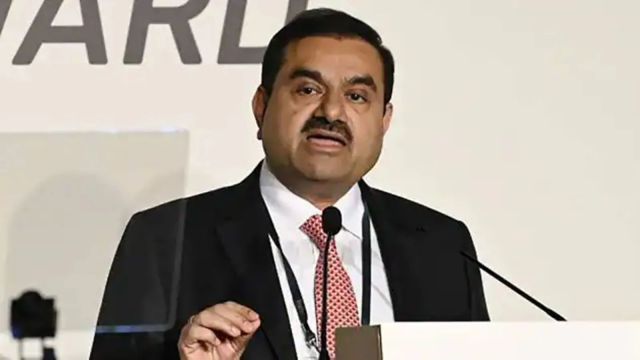Allegations ‘unsustainable’: Bombay HC discharges Gautam Adani, Rajesh Adani in SFIO’s ‘share-rigging’ case
The case pertains to alleged violations of market regulations to the tune of Rs 388 crore over which the Serious Fraud Investigation Office had filed a chargesheet in 2012.
 The high court passed the verdict on appeals by the Adanis and AEL challenging the sessions court order, argued through senior advocates Amit Desai and Vikram Nankani. (File Image)
The high court passed the verdict on appeals by the Adanis and AEL challenging the sessions court order, argued through senior advocates Amit Desai and Vikram Nankani. (File Image)Finding the allegations against them to be “unsustainable”, the Bombay High Court on Monday discharged Adani Enterprises Limited (AEL) chairman Gautam Adani and managing director Rajesh Adani from a Serious Fraud Investigation Office (SFIO) case related to the alleged manipulation of share prices.
A single-judge bench of Justice Rajesh N Laddha quashed and set aside the decision by a sessions court that had refused to discharge the Adanis and AEL from the case of alleged market regulation violations to the tune of Rs 388 crore.
In November 2019, a sessions court in Mumbai had overturned a magistrate court’s orders of May 2014 and October 2015 which had discharged AEL (formerly known as Adani Exports Limited) and the Adanis for alleged cheating and manipulation of share prices of AEL through entities controlled by stockbroker Ketan Parekh, who is the main accused in India’s biggest stock market scandal dating back to 1999-2000. The appellants were booked for offences punishable under sections 420 (cheating) and 120B (criminal conspiracy) under the Indian Penal Code (IPC).
The SFIO had filed the chargesheet in this regard in 2012. The sessions court had passed the order on a revision plea.
Sessions judge D E Kothalikar had said that the probe by the SFIO “prima facie” established that the promoters of the Adani Group and Ketan Parekh (KP) made “unlawful gain” of around Rs 388.11 crore and Rs 151.40 crore, respectively, via alleged manipulation of the shares of AEL, the flagship firm of the Adani Group.
The SFIO had alleged that promoters of Adani and Parekh also caused unlawful loss to the public at large. It said AEL had extended the cut-off date for the allotment of bonus shares from November 1, 1999 to November 29 that year, to allegedly enable KP entities to acquire shares from the open market during the said period, thereby making it eligible for the bonus shares.
The central agency claimed that Adani entities made unlawful gains by providing funds and shares to KP entities for artificially manipulating shares of the company and offloading their shareholding when the share prices were high. The agency said the Adanis and Parekh were aware of the manipulation and price movement at each stage.
Aggrieved by the sessions court orders, the Adanis and AEL approached the high court in 2019 with appeals, argued by senior advocates Amit Desai and Vikram Nankani. In December 2019, the high court stayed the sessions court order and the same was extended from time to time till date.
Justice Laddha found that “conclusions of sessions court exceeded its legal authority”, therefore the impugned orders cannot be sustained.
“After careful evaluation of the submissions and the records, it becomes evident that the complaint fails to satisfy the essential ingredients of the offence of cheating under Section 420 of the IPC…there is a conspicuous absence of any such allegations from an affected party (victim suffering from loss). Merely by asserting that the accused has made a wrong gain without demonstrating the corresponding wrongful loss or deception suffered by a specific victim does not suffice to attract offence of cheating under IPC,” the high court held, adding that the ancillary charge of criminal conspiracy was also “unsustainable.”
The court also found “substantial merit” in the arguments of the appellants that SFIO was incompetent to file a complaint under IPC since the Companies Act, 1956 did not stipulate the same. “In the absence of any substantive findings, error, or legal infirmity in the discharge orders, the interference by the revisional (sessions) Court was unwarranted and beyond its jurisdictional mandate,” it noted and reinstated the discharge orders passed by the magistrate.
The bench also rejected a request made by the SFIO to suspend the operation of its judgment for two weeks to challenge the same before the Supreme Court.







